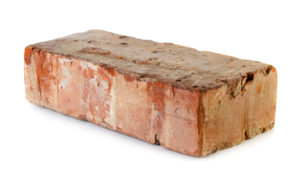
[From the last episode: We looked at the notion of a computing threadA piece of a program that can execute at the same time that some other piece of that same program can execute..]
Today we take a quick detour from our thread on… threads… to hit a topic we talked about long ago, back when motivating all of the things that should be on your IoT device purchase checklist. One of those items asks whether the device has to be connected to the internet in order to function.
The motivation back then was that you want to be able to control the devices you’ve purchased as much as possible, and you want them to work even when the internet is down – assuming that the internet isn’t a fundamental part of how the device works. For example, if you have a device that needs to check on the weather forecast, then it has to be able to access that forecast over the web in order to work. That’s fundamental to what the device is. But if you’ve got a “smart” refrigerator, then it should be able to work just fine with no internet connectionThis refers to some kind of electrical connection. It might be through a network cable, a cable connection, a wireless connection, or a phone - just to name some options. The connection might be to the internet or to some other local device..
The concern is that too many companies might want to keep control of your device (in which case, it’s not really your device – they’re just letting you use it). And they might want to charge a monthly service fee. If there’s truly a service that could build on top of the device – like building a shopping list of missing items from the fridge that you can access remotely while in the store – then that service should be optional. Otherwise, you’ve got a more expensive fridge than a normal one – and you have to pay a service fee just to keep it working.
When the Connection Goes…
I use the refrigerator example simply to illustrate the notion; I haven’t heard of any refrigerators that stopped working and let all of the food go bad because of a missed service payment. But there are plenty of other devices that will not function without the internet connection. And, when that happens, the device simply won’t work anymore. We have a saying in the industry, that such a device is basically nothing more than a brickUsed as a verb, indicates taking a device that performs some function and eliminating or disabling that function. It’s considered no better than a brick at that point. at that point. And it’s even a verb: we say that the device was bricked.
Well, a new reason for not wanting a required connection for your device is now rearing its head: companies deciding that, even though you bought your device, not enough of you did, or it’s not profitable enough, or there’s something new and shiny that they want to do instead – and so they cancel the cloudA generic phrase referring to large numbers of computers located somewhere far away and accessed over the internet. For the IoT, computing may be local, done in the same system or building, or in the cloud, with data shipped up to the cloud and then the result shipped back down. service to which your device connects.
My good colleague Jim Turley ranted about this very recently, listing a number of recently canceled devices and servicesWe are used to purchasing products outright. "Services" is a new concept where you may or may not buy the product, but optional or mandatory services come with the product. Those services may have an ongoing cost separate from the purchase price.. In some cases – like a refrigerator – the device still works as a normal (but more expensive) refrigerator. In other cases, devices were bricked.
I’ll let Jim tell the specifics of the story; you can find it here. It reinforces the fact that, the best smart device is one that doesn’t require a connection (even if an optional service requires a connection).

Leave a Reply